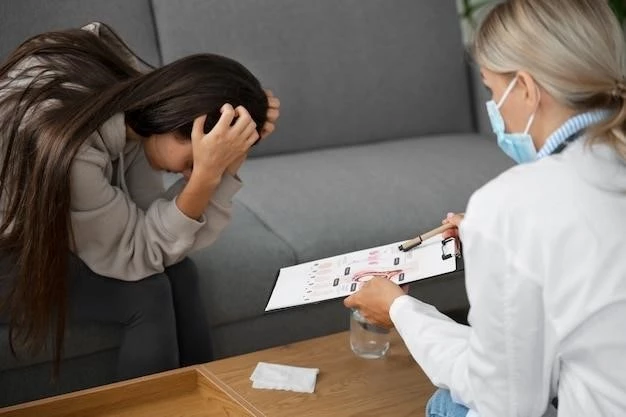Introduction
Stimulant psychosis is a mental disorder characterized by hallucinations, paranoid thoughts, and disorganized behavior typically following substance abuse;
Overview of Stimulant Psychosis
Stimulant psychosis is a mental disorder characterized by hallucinations, paranoid thoughts, and disorganized behavior typically following substance abuse. Psychotic symptoms may include delusions, thought disturbances, and perceptual alterations. Recognizing the signs early is crucial for timely intervention and management. Understanding the distinct features of stimulant-induced psychosis is essential for accurate diagnosis and effective treatment. Consult a healthcare professional for proper evaluation and care in cases of suspected stimulant psychosis.
Signs and Symptoms
The symptoms of stimulant psychosis may include paranoid delusions, visual hallucinations, and disorganized thinking. Recognizing these signs early is crucial for timely intervention.
The symptoms of stimulant psychosis may include paranoid delusions, visual hallucinations, disorganized thinking, and perceptual disturbances. Recognition of these common symptoms is vital for prompt intervention and appropriate management of stimulant-induced psychosis.
Diagnosis
Diagnosing stimulant psychosis involves identifying symptoms like hallucinations and delusions that occur following substance abuse. Seek professional evaluation for accurate diagnosis and treatment.
Common Symptoms of Stimulant Psychosis
Common symptoms of stimulant psychosis include paranoid delusions, visual hallucinations, disorganized thinking, and perceptual disturbances. Recognizing these hallmark symptoms is crucial for early detection and appropriate management of stimulant-induced psychosis. Seek professional help if you or someone you know experiences these symptoms.
Duration and Recovery
Stimulant-induced psychosis symptoms may resolve within days of substance cessation, but chronic cases may persist for over six months, emphasizing the need for timely intervention and professional guidance. Recovery duration varies based on individual factors.
Distinguishing Stimulant-Induced Psychosis from Other Psychotic Disorders
Identifying the unique symptoms of stimulant-induced psychosis, such as paranoid delusions and hallucinations following substance use, can aid in distinguishing it from other types of psychotic disorders. Seek professional evaluation for an accurate diagnosis and tailored treatment plan.
Treatment
Antipsychotic medications are commonly used to manage symptoms of stimulant psychosis effectively. Consult a healthcare provider for appropriate treatment options.
Duration of Stimulant-Induced Psychosis
The duration of acute stimulant-induced psychosis symptoms typically lessens with substance cessation, while chronic cases may persist for over six months, especially in individuals with a history of severe substance use. It is crucial to seek professional guidance for proper management and monitoring of recovery.
Risk Factors
Understanding the risk factors contributing to the development of stimulant psychosis is vital for taking preventive measures. Factors such as substance abuse history and high-stress levels play a significant role.
Stimulant psychosis can be influenced by various factors, including the type and dosage of stimulant used, individual sensitivity to the drug, prolonged substance abuse, underlying mental health conditions, and environmental stressors. Identifying these contributing factors is crucial for preventing the onset of stimulant-induced psychosis.
Prevention
Strategies to prevent stimulant-induced psychosis include avoiding substance abuse, managing stress levels, and seeking professional help if early symptoms manifest. Prioritize mental health and seek support when needed.
Factors Contributing to the Development of Stimulant Psychosis
Several factors can contribute to the development of stimulant psychosis, such as the type of stimulant used, individual sensitivity to the drug, prolonged substance abuse, underlying mental health conditions, and environmental stressors. Understanding these factors is crucial in addressing and preventing stimulant-induced psychosis effectively.
Impact on Mental Health
Stimulant psychosis can have long-lasting effects on mental well-being, potentially leading to persistent hallucinations, paranoia, and disorganized thinking. Seeking timely treatment and support is essential for managing these impacts on mental health.
Long-Term Effects of Stimulant Psychosis on Mental Well-Being
Stimulant psychosis can have lasting implications on mental health, leading to persistent hallucinations, paranoid ideation, and disorganized thinking. Seeking comprehensive treatment and support is essential for mitigating the long-term impact on mental well-being.

Management Strategies
Coping mechanisms and support systems are essential for individuals with stimulant psychosis. Seek professional help, engage in therapy, and maintain a supportive network to manage symptoms effectively.
Coping Mechanisms and Support Systems for Individuals with Stimulant Psychosis
Individuals with stimulant psychosis can benefit from coping strategies like mindfulness, stress management techniques, maintaining a routine, and seeking therapy. Additionally, having a strong support system comprising family, friends, and mental health professionals can provide essential assistance in managing symptoms and promoting overall well-being. It’s important to prioritize self-care and adhere to treatment plans for better outcomes in dealing with stimulant psychosis.

Conclusion
Managing stimulant psychosis requires a comprehensive approach that includes coping mechanisms, professional support, and a strong care network. Prioritize mental health and seek assistance for effective symptom management.
Key Takeaways and Recommendations for Dealing with Stimulant Psychosis
When dealing with stimulant psychosis, it is crucial to recognize the symptoms early, seek professional help promptly, employ coping mechanisms, such as stress management and therapy, prioritize mental health, and maintain a robust support system. Adhering to treatment plans and staying connected with healthcare providers are essential for managing and overcoming the challenges associated with stimulant-induced psychosis.
